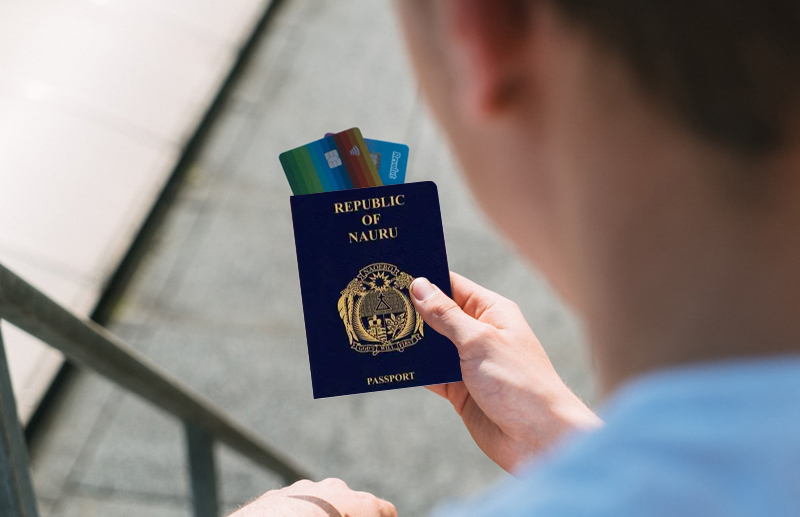Published on: 2025-04-07 ![]() Number of views: 514
Number of views: 514

As immigration law in the UK continues to evolve, so do the rules surrounding sponsor licences and employer compliance obligations. Employers must remain vigilant and well-informed to avoid severe penalties and protect both their workforce and their business reputation.
Recent reports from the National Audit Office (NAO) and the Home Office reveal growing enforcement measures, increased revocations of sponsor licences, and widespread employer misunderstandings regarding Right to Work (RTW) checks. This article explores the key findings from these reports and provides practical guidance on staying compliant.
The NAO's March 2025 report highlighted several issues within the Skilled Worker visa route. Initially, the Home Office was slow to detect risks of non-compliance and exploitation. However, in response to growing concerns, enforcement efforts have significantly increased.
New strategies now include:
These efforts have already produced measurable results. The number of sponsor licence revocations has risen dramatically—from 273 in 2022 to nearly 1,500 in 2024. Despite these interventions, the NAO warned that only 1% of sponsors have undergone compliance checks, largely due to resource constraints. As a result, there remain large enforcement gaps that allow non-compliance and exploitation to go unchecked.
A further concern raised by the NAO was the lack of comprehensive data, which continues to hinder effective risk mitigation, especially when it comes to protecting vulnerable migrant workers.
On 1 April 2025, the Home Office published a report titled “Employer Awareness of and Self-Reported Compliance with Right to Work Checks.” This research revealed that while most employers are aware of the obligation to carry out checks, many lack in-depth understanding of how and when to conduct them properly.
Key Findings:
Even though employers generally understood what details to check during a manual RTW check, they showed weaker knowledge in two critical areas:
This knowledge gap becomes a serious issue when an employee’s immigration status changes—such as when a student visa expires, but the employer continues to allow the same working hours. In such cases, the employee could unknowingly become an overstayer, and the employer risks hiring someone without the right to work.
The report also found that:
Employers that hire zero-hours workers were flagged as being at increased risk of non-compliance, often answering key compliance questions incorrectly.
These findings underscore the urgent need for improved awareness and training, especially among small and micro businesses, to prevent serious compliance failures.
Right to Work checks are not merely administrative requirements—they serve several crucial purposes:
Employers must ensure they are hiring individuals who:
Every employer in the UK must meet three essential obligations:
Failing in any of these areas can lead to serious consequences.
Employers can conduct RTW checks through three approved methods:
This method applies to all employees, regardless of nationality.
This is required for foreign nationals whose immigration status can be verified online.
Available only for British and Irish citizens with a valid passport.
The penalties for failing to carry out proper checks are severe:
Despite these serious consequences, 72% of employers surveyed believed that illegal working is uncommon in their sector. However, 21% said it was common—with construction (41%) and accommodation/food service (39%) sectors being the most frequently affected.
A key reason may be that some jobs—such as driving or legal positions—require official certifications that act as a natural compliance filter. In contrast, roles such as chefs, construction workers, or plumbers, which involve manual labour, often do not require official qualifications, making it easier for undocumented workers to go undetected.
This misjudgment can have serious long-term consequences for both employers and employees, including increased risk of exploitation and harsher enforcement actions.
Small and micro businesses face unique risks:
These gaps make them more vulnerable to accidental breaches and disproportionately subject to enforcement action.
The legal, financial, and reputational risks associated with Right to Work non-compliance cannot be overstated. With increased enforcement and harsher penalties in place, employers must act decisively to:
By doing so, businesses not only protect themselves from punitive action but also support a fair, safe, and law-abiding labour market for all.

 285
285As an officially authorized agent of Nauru, Speeder Immigration held an official meeting with Mr. Nicholas, Strategic Relations Manager of the “Nauru Economic and Climate Resilience Citizenship Program,” at our Manchester office in the UK.

 705
705On 22 July 2025, the UK government introduced new immigration rules that reshape the Skilled Worker visa pathway. For entrepreneurs and business owners considering the self-sponsored Skilled Worker visa route, the door remains open — but the requirements have become more selective.

 356
356In the heart of the Pacific Ocean lies Nauru, a small and peaceful island nation with a warm community and a history that once thrived on valuable phosphate resources. Today, Nauru is focused on a new chapter — one built on sustainable development, climate resilience, and economic growth. Through the Nauru Economic and Climate Resilience Citizenship Program, successful applicants can secure a safe second citizenship while directly contributing to the country’s infrastructure and environmental initiatives.

 469
469British citizenship is a privilege, not a right—and one of the biggest hurdles applicants face is proving they are of good character. Many applicants believe that if they have indefinite leave to remain, a long residence history, or no current issues, they will automatically qualify. But the reality is more complex.
Is the immigration process complicated? Don’t worry! Xingjie Immigration’s exclusive planner will tailor a personalized plan for you!

We offer free consultations to assess your needs and provide you with an opportunity to experience the high-quality service that Star Jet provides.

Our services are fully transparent, keeping you updated on progress at all times.

With our multi-to-one service model, we aim to achieve satisfactory results in the shortest possible time.

Strict confidentiality of client data is always guaranteed, with data encrypted and securely stored.

+44-7596688888
(Emergency contract number)

admin@starjetimmigration.com
Birmingham Office
Second Floor,
White House,
111 New Street,
Birmingham
B2 4EU
 0121 517 1168
0121 517 1168
 0795 668 8888
0795 668 8888
Manchester Office
St James Tower,
7 Charlotte St,
Manchester
M1 4DZ
 0161 521 9800
0161 521 9800
 0795 668 8888
0795 668 8888
Star Jet Service Ltd is an immigration law firm approved by the UK’s Immigration Advice Authority (IAA: F202331612), with offices in Birmingham and Manchester in the UK, as well as in China. Our team of highly experienced immigration lawyers provides services for the UK and other countries. Each core member of the firm has many years of industry experience, and we are committed to delivering efficient, high-quality services to clients from diverse backgrounds.All immigration lawyers and key personnel at Star Jet are based in the UK, ensuring the utmost privacy for our clients. In addition, we have dedicated Education and Property Departments, offering comprehensive, one-stop solutions to meet a wide range of client needs.
Star Jet Service Ltd is a company registered in England and Wales. Registration number: 12300174. Registered office: Second Floor, White House, 111 New Street, Birmingham B2 4EU.
Star Jet Service Ltd, trading as Star Jet Immigration Law Firm, formerly Duber Service, incorporated under the laws of England & Wales since November 2019. Star Jet Immigration Law Firm is authorised to provide immigration advice and services by the IAA.
Authorised and regulated by the IAA under number F202331612. VAT registration number: 426 4335 06.
©️2025 Star Jet Service Ltd | Privacy Policy